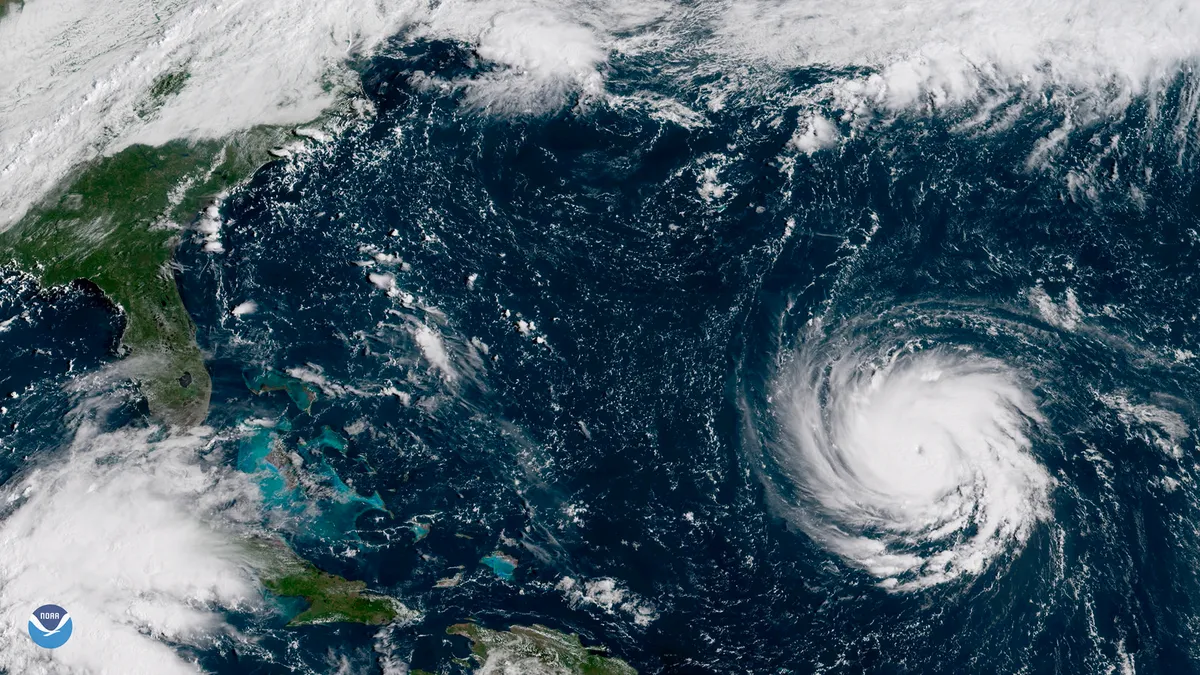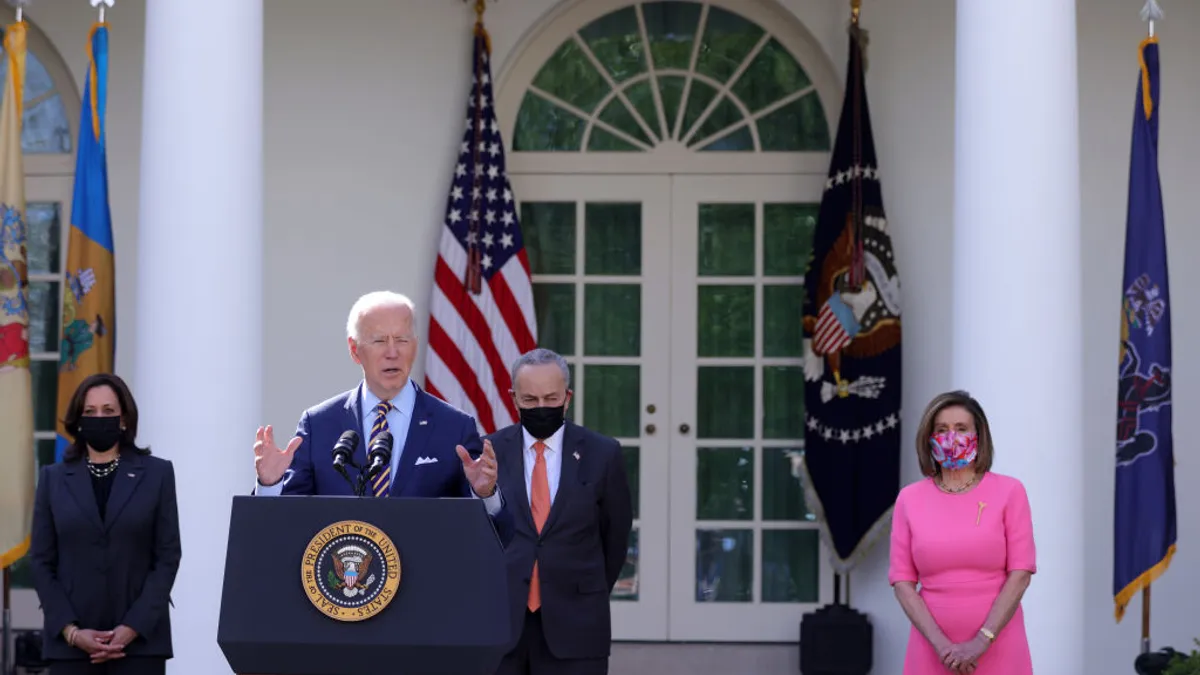Dive Brief:
- The United Nations' Intergovernmental Panel on Climate Change (UN IPCC) released its Special Report on Global Warming of 1.5ºC, noting society has until 2030 to mitigate global warming and keep temperature rises to a maximum of 1.5ºC.
- The report suggests human-caused CO2 emissions will need to fall 45% from 2010 levels by 2030 in order to reach "net zero" by 2050. The full report gives policymakers guidelines on how to immediately tackle this issue. "The next few years are probably the most important in our history," said Debra Roberts, Co-Chair of IPCC Working Group II, in a statement.
- The report also highlights the severity of "every extra bit of warming," noting that a 2ºC rise in global temperatures, compared with 1.5ºC, could have drastic impacts on global sea rise and the loss of some ecosystems. "Limiting warming to 1.5ºC is possible within the laws of chemistry and physics but doing so would require unprecedented changes,” said Jim Skea, Co-Chair of IPCC Working Group III, in a statement.
Dive Insight:
It can be hard to conceptualize how much even the slightest change in temperature can impact the well-being of human society and other forms of life. For instance, a 1.5ºC rise in global temperatures will cause the coral reefs to decline by 70-90%, while virtually all coral reefs (>99%) will be lost by 2100 with a rise of 2ºC, according to the report. Additionally, sea level rise would see an extra 10cm by 2100 with a rise of 2ºC, ultimately impacting 10 million more people than if temperatures are limited to 1.5ºC.
And while these predictions may seem a distant reality, experts warn we're already seeing the consequences of 1°C of global warming through droughts, year-round wildfires, hurricanes, melting Arctic sea ice and other environmental changes.
With such catastrophic impacts at stake, and such a short predicted timeline to take action, it is evident that policymakers from around the globe will need to work diligently to reduce emissions. Last week, Smart Cities Dive took a look at how six major cities, including New York and London, are working to implement policy changes to mitigate warming, but they cannot do it alone. All global cities will need to emulate the actions of leading metropolitan hubs to ensure that impactful transitions are made in how humans utilize land, energy, transportation, water and other key factors of living.
“The good news is some of the kinds of actions that would be needed to limit global warming to 1.5ºC are already underway around the world, but they would need to accelerate,” said Valerie Masson-Delmotte, Co-Chair of Working Group I, in a statement.
But the onus won't just fall on government leaders to make a change. Patrick McCully, Climate and Energy Director at the Rainforest Action Network, is also calling on banks, insurers and investors to withdraw support from new coal and fossil fuel projects. "Financiers and insurers need to set firm targets for phasing out all financing of fossil fuels over the next two decades, and rapidly accelerate their support for clean energy," he said in a statement.











